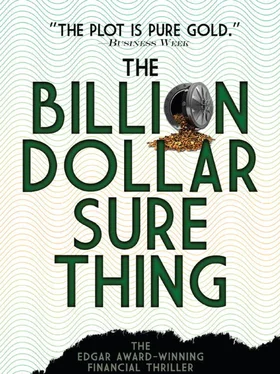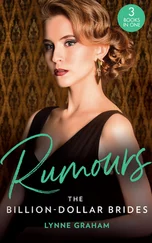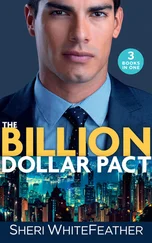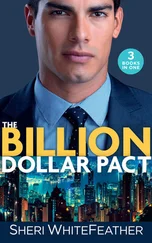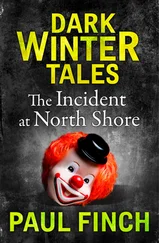“Mr. Rosen,” began Radazan, “first I would like to tell you how very much I appreciate your coming all this way to talk to us. We feel honoured.”
“I’m really the one who should feel honoured, Mr. Radazan,” replied Rosen. “Tell me, what prompted you to contact me in the first place?”
Stanley’s thoughts in New York proved correct. They had investigated him from top to bottom. They were essentially interested in what Mr. Radazan termed his track record. Lebanese.
“Frankly, Mr. Rosen, we are not interested in your Panamanian corporations or Liechtenstein Anstalten. We don’t need that sort of thing. We have no tax problems here. What my client seeks is performance, and we have not been getting it so far in New York.”
“Something puzzles me, Mr. Radazan. I have had zero experience in this part of the world. But still, I do get around a bit. And I know that ‘performance’ was never really important here. I’ve been told on many different occasions that most of the investment funds coming out of here are put either into property or into bank time deposits. Period. And that one is even very fussy about the banks, with the result that such money placements are restricted more or less to the top fifty banks in the world—and that the British banks have always gotten the lion’s share. So pardon me if I sound just slightly suspicious. I don’t want to waste your time, and I hope you won’t waste mine. I’m not a property specialist, and I don’t work for Barclays.”
Radazan did not appear at all upset at this show of bluntness. Quite the contrary. “Mr. Rosen, your analysis of the situation here is quite correct—or should I say, was correct until a few years ago. Also here in the Near East things change. A new generation has come into key positions, not just in Egypt or Libya but also in other countries and even sheikdoms. These younger people have, for the most part, been well educated in England or France and have quite an able understanding of investment procedures and markets. To be sure, they are by no means in charge. But they are seeking to promote a middle way between the ultraconservatism of their fathers and grandfathers and the legitimate objective of capital gains in the modern sense.”
“Fine. But why come all the way to New York for professional money management? You’ve got enough much closer—right here in Beirut, or in any case in London, or Amsterdam, or Geneva.”
“Well, I cannot answer in general; most of the money from this area does go to Europe. But in this specific case my friend tried Europe but did not get results, or at least the results he had hoped for with his ‘new’ approach. He then came to me for advice. I am a simple commercial banker and not able to run investment funds of this size. So I contacted some friends in New York who I thought would be ideal. You saw the portfolio that resulted. Within the last twelve months they have managed to drop almost $10 million. And this was an improvement over what happened in Europe.”
There was a familiar ring to all this for Stanley Rosen. Investors jumping from the frying pan into the fire and then back into a fresh frying pan, mistaking motion for action.
“So I’m supposed to pick up the pieces,” stated Stanley.
“Quite,” replied Radazan. “The fee we are discussing is .5 of one percent per annum based on the assets under management, plus 10 percent of the annual gains achieved—if any. The exact formula can be worked out to your satisfaction, I’m sure, when we reach that point.”
“Are you in a position to make the commitment?” asked Rosen.
“No,” replied Radazan. “I think that I should make it quite clear that I am just what I believe you call an errand boy for my friend. Actually, he’s my uncle on my mother’s side. He’s in Beirut and is expecting to see us right about now.”
“What does he expect to hear from me?”
“Not just blah blah. If you have something very specific in mind that you could propose, I think it would be advantageous for all of us.”
“I do.”
“Fine. Then I would suggest we move right on.”
This speed and firmness of decision could not have been more atypical of the Arab way of doing business. The normal pattern involved days, weeks, and months of back and forth and up and down, all with a maximum of ritual and a minimum of concrete proposals. Apparently somebody had done a magnificent job of selling Stanley Rosen to Radazan, and Radazan had done an even better job with his client. As Radazan later related to him, the process had already been going on for more than four months.
They got back into the waiting car and moved off. “Tell me, Mr. Radazan, how did you get so smart?” asked Rosen.
“You mean my English?” countered Radazan.
“That and a few other things,” answered Rosen.
“Essentially from you Americans. I attended the American University here in Beirut—studied law—and a few years following graduation went to the middle management business school at Fontainebleau. They use essentially the Harvard case method, you know.”
“Oh,” commented Stanley, thinking that he had been right in believing that this new client would be a major step up from those jerks in Vegas and their tin-plated lawyers. This was class!
The contrast between Stanley’s thoughts and the scenery outside the car window could not have been greater, for he suddenly found himself in the old Arab quarter of Beirut. The streets were crowded and dirty, the traffic a chaotic mixture of carts, donkeys, unbelievably overloaded trucks: the dress of the people was just as exotic. It was smelly. Much to Rosen’s surprise, they stopped right in the middle of one of the crummiest streets of all, and Radazan indicated that they were to get out.
To enter the building that was apparently their goal, both had to almost climb over a crippled beggar that huddled in the doorway. Stanley suddenly did not like this one little bit.
Is this just one big fucking put-on? was the elegant thought which struck him as he followed Radazan up two flights of stairs—very rickety stairs.
The only door on the second floor was immediately opened after Radazan rang the bell. A bearded Arab in full desert dress ushered them in after Radazan and he had exchanged a few words in Arabic. In the large front office, if you wanted to call it that for want of a better term, similar Bedouin types were lounging around. A seventh, dressed in European style, stopped picking away on a typewriter that appeared at least fifty years old to glare at them as they were ushered through into the adjoining office.
As they entered, an almost grotesque figure arose from behind his desk, and extended his hand to Radazan. Radazan in turn introduced the person to Stanley as Ali ben Fezali, his uncle on his mother’s side. The man appeared to be in his seventies, was hugely fat, dirty—a nomadic version of Sydney Greenstreet. His desk was cluttered with papers in complete disorder, some of them yellow with age or perhaps camel dung; others just plain smeared. The desk was huge, but old—and for some reason, battered. The only other pieces of furniture in the room were two plain straightback chairs, a small coffee table, and a couch—obviously of leather stuffed with horsehair.
Rosen in his life had dealt with some peculiar principals in the States—to put it mildly—but this took the absolute goddamned cake.
Radazan took his place on the horsehair couch and motioned to Rosen to join him. Fezali settled once again behind his desk. Simultaneously, the door opened, and another one—also in full robes—entered and presented everybody with the usual small cup of thick coffee. This time without a glass of water.
Fezali began to speak to Radazan in Arabic, and as he spoke it became apparent, that he was a man of humour. His huge face crinkled often with a smile as he spoke. Stanley started to relax.
Читать дальше
